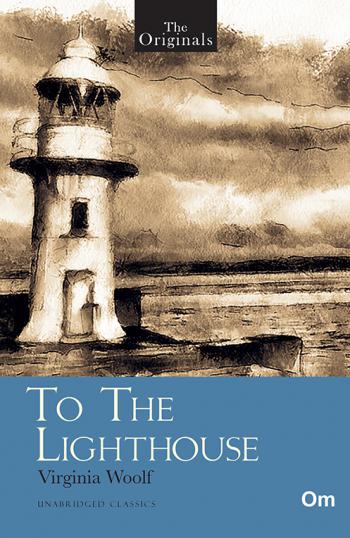The Originals: To The Lighthouse - Om Books
"And all the lives we ever lived and all the lives to be are full of trees and changing leaves. Virginia Woolf’s most autobiographical novel, To the Lighthouse (1927) revolves around the Ramsay family and their life in the summer home situated at a distance from a lighthouse, in the Hebrides, Isle of Skye in Scotland between 1910 and 1920. Enjoying the summer with their eight children, the Ramsays host an assortment of guests—Charles Tansley, an admirer of Mr. Ramsay’s work as a philosopher; Lily Briscoe, a young artist, and William Bankes, an old friend of the Ramsays, among others. Six-year-old James Ramsay wants his father to take him to the lighthouse, but Mr Ramsay keeps delaying the trip. And when the summer ends, war and death alter many realities. The journey to the lighthouse is deferred. A book of childhood desires, conflicting adult relationships, philosophical introspection, and multiple subjectivities, To the Lighthouse, divided into three sections—The Window, Time Passes, The Lighthouse—is about many journeys and an evergreen classic."
Born on 25 January 1882, Virginia Woolf was one of the most influential modernist 20th-century English writers, notable for using stream of consciousness as a literary technique in her works. While writing anonymous reviews for journals, she resolved to ‘re-form’ the novel by experimenting with dreams and delirium. Her novel Melymbrosia, which she completed in 1912 was born out of this determination. Recast and published in 1915 as The Voyage Out, it was about a young woman’s journey of selfdiscovery on her father’s ship in South America. Later, she modelled many of her characters on real-life associates and acquaintances.
At the onset of 1924, the Woolfs moved their residence from the suburbs back to Bloomsbury, where a relationship blossomed between the aristocratic Vita Sackville-West and Virginia. With Sackville-West, she learned to face her anxieties and overcome her nervous ailments. In fact, Orlando, a fantastical biography is partly a portrait of Vita Sackville-West.
One of the most important chapters in her early life was the summer home the family visited in St Ives, Cornwall, where she first beheld the Godrevy Lighthouse. To the Lighthouse (1927) is, therefore, considered one of her most autobiographical novels. Apart from her extremely popular extended essay, ‘A Room of One’s Own’ (1929), her other seminal works include—Mrs Dalloway (1925), Orlando (1928) and The Waves (1931).
In 1941, Virginia Woolf drowned herself in a river, aged 59. Her last work, Between the Acts, was posthumously published later that year.
